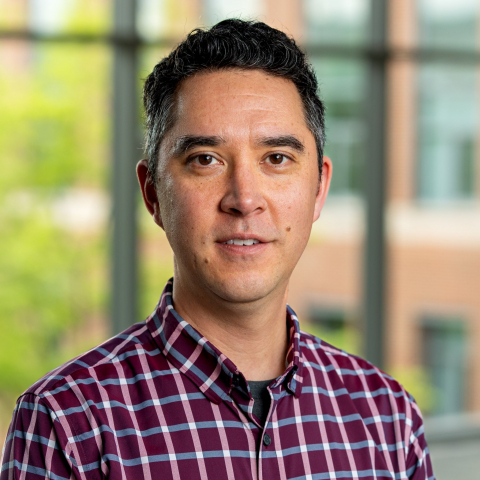Microbiome Evolution

Human microbiomes are influenced by nearly every aspect of human life, including diet, medication, cultural practices, ancestry, and environmental exposures. Our researchers are trying to untangle how microbes – bacterial and otherwise – and their interactions with other microorganisms evolve as part of this complex web of interactions. Researchers in our Center using ecological, genomic, and ancient DNA methods to explore the evolution of microbiomes over time and space.
To learn more about ongoing evolutionary research on human and environmental microbiomes, check out Penn State’s new ancient DNA research laboratory – Penn State Ancient Biomolecules Research Laboratory.
Faculty Working in Microbiome Evolution
Seth Bordenstein
Director of the One Health Microbiome Center; Huck Chair in Microbiome Sciences; Professor of Biology and Entomology
The evolutionary and genetic principles that shape symbiotic interactions between animals, microbes, and viruses and the major applications of these interactions to human health.
Ilias Georgakopoulos-Soares
Assistant Professor
The development and implementation of new computational methods in genomics and molecular biology, with the aim of identifying genetic biomarkers for the diagnosis, monitoring, and treatment of human diseases, including bacterial and viral infections and of aging-associated diseases including neurodegenerative diseases and cancer.
Camelia Kantor
Associate Director of Strategic Initiatives; Research Professor
Camelia Kantor is a highly interdisciplinary geospatial researcher and integrator. Before joining Huck, her prior work involved HBCU teaching, research and training and national security related program assessment and management. Her research interests are at the intersection of geospatial, life sciences, and business. Since 2010, she has been a frequent speaker, conference lead, and academic program evaluator.
Jennifer Macalady
Director of the Ecology Institute; Professor of Geosciences
Microbial interactions with earth materials: soils, sediments, solutes, atmospheric gases, minerals, and rocks. Early evolution of Earth’s biosphere, including photosynthesis and sulfur cycling. Microbial ecology, environmental omics, microbial biogeography.
Tim Miyashiro
Professor of Biochemistry and Molecular Biology
How bacteria adapt to a host environment. The mutualistic symbiosis established between the Hawaiian bobtail squid (Euprymna scolopes) and a bioluminescent bacterium (Vibrio fischeri).
Tanya Renner
Associate Professor of Entomology
Evolution of chemical and structural defense. Molecular evolution, evolutionary genomics, and transcriptomics. Origins and evolution of carnivorous plants.
Laura Weyrich
Associate Professor of Anthropology
Reconstructing ancient oral microbiomes and supporting ancient DNA analysis of past humans, environments, and animals.






